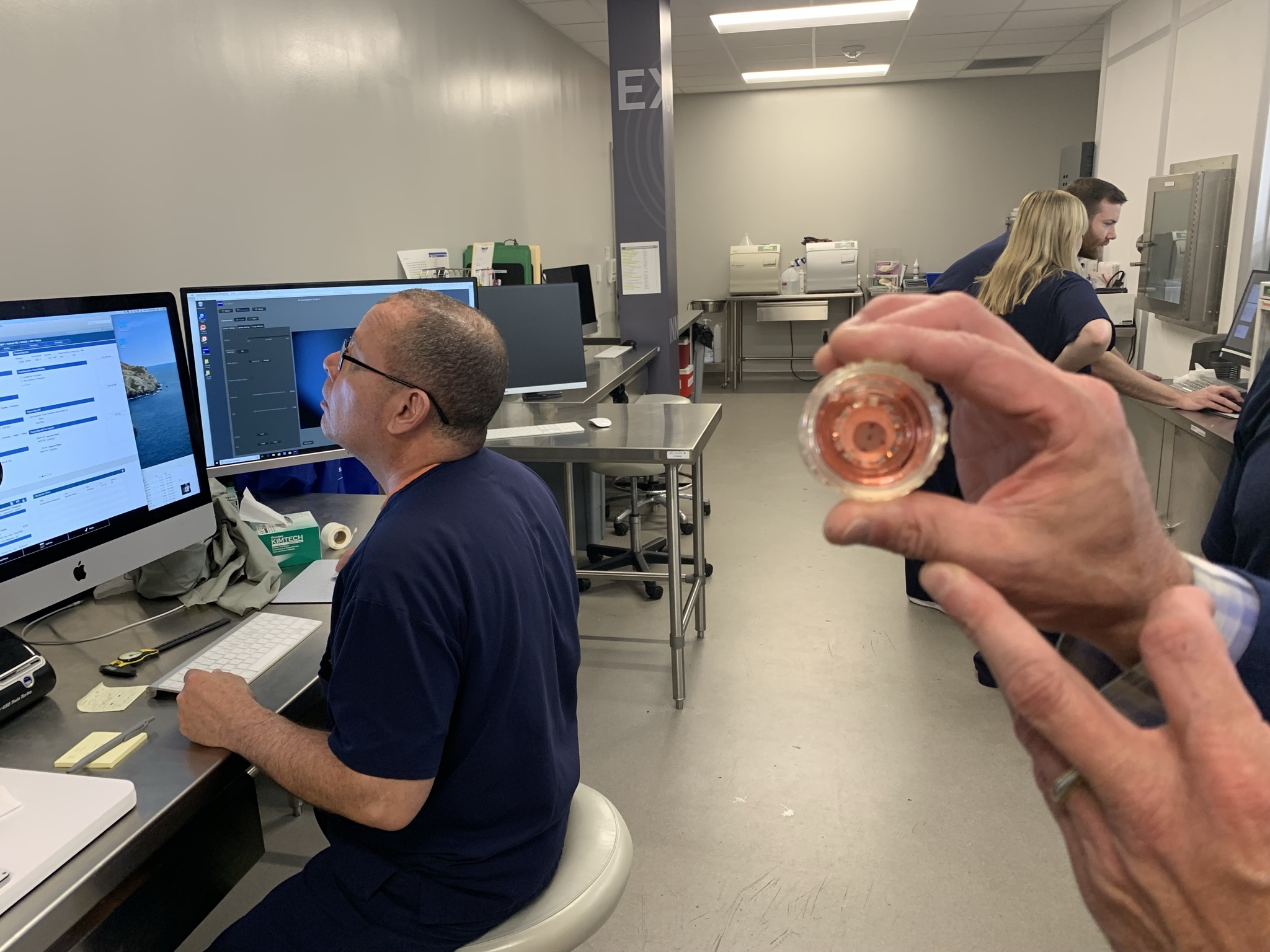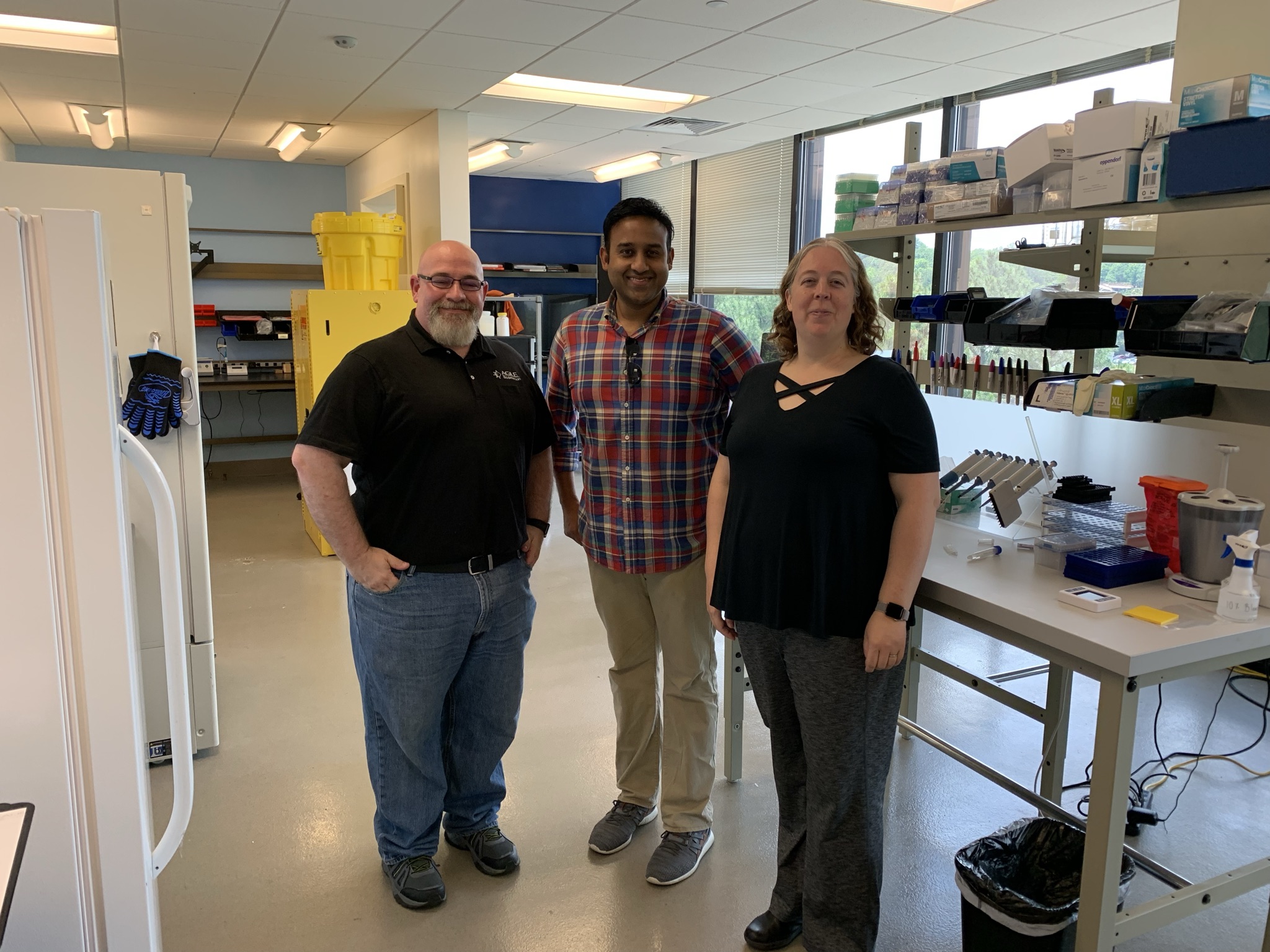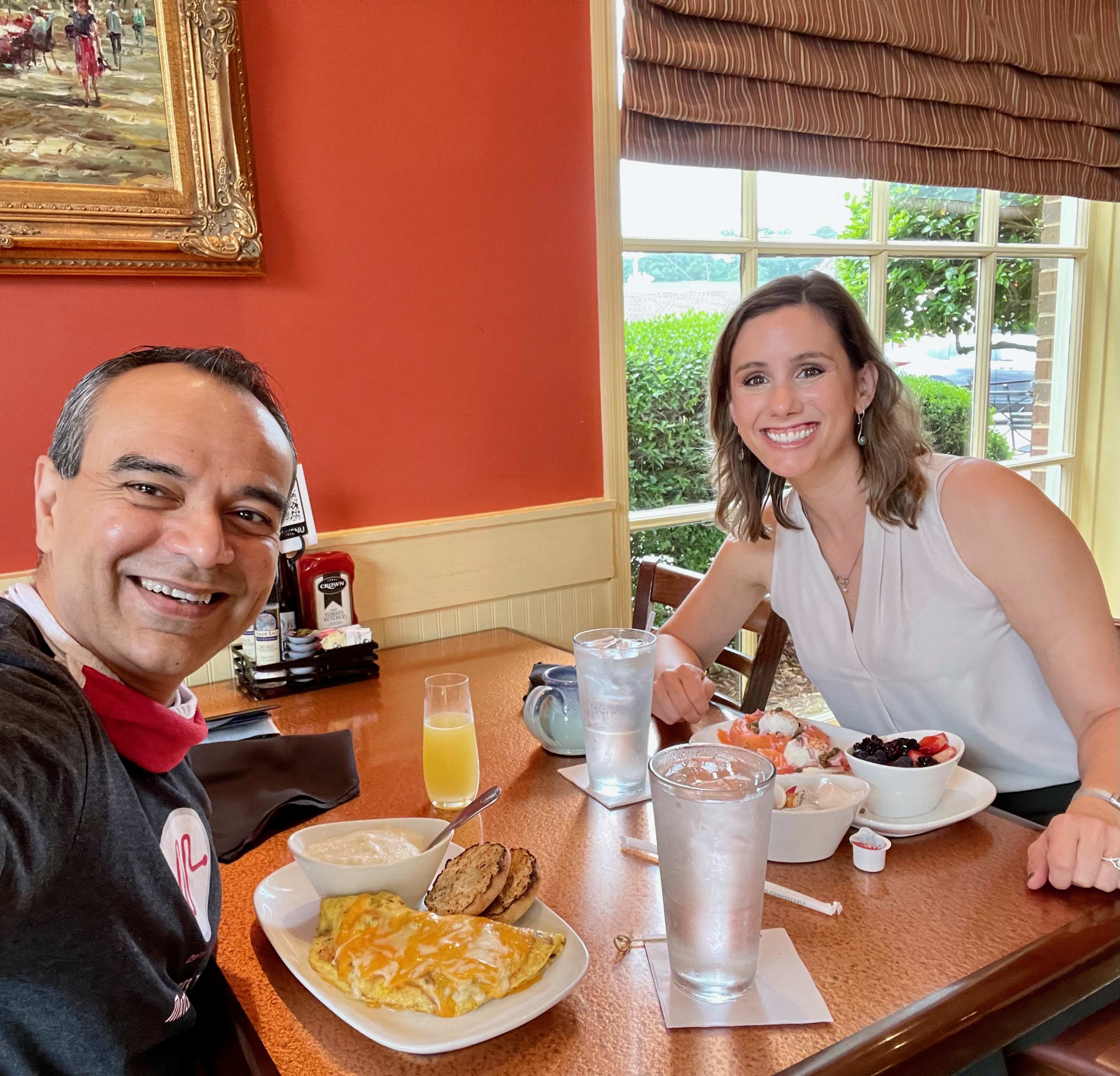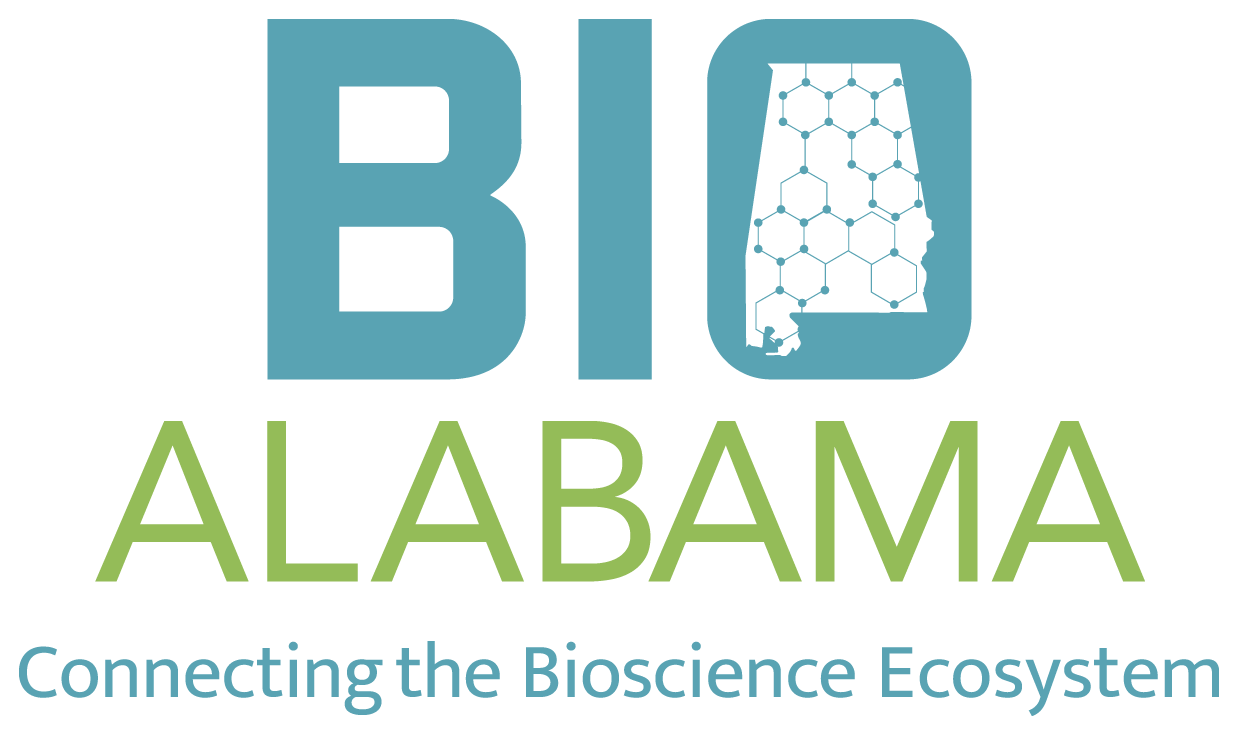BIO Alabama in Birmingham
May 26-27
BIO Alabama's new executive director - Rachel Lane, PhD, RD - is hitting the road this summer, with trips planned to all five hubs in the state. At the end of May, Dr. Lane began her travels with a two-day trip to Birmingham. Advancing Sight Network was the first stop, where Dr. Greg Grossman and Kyle Mavin showed off their thoughtfully designed facility. Dr. Lane marveled at the complex beauty of organ donation.
 A transplant-ready cornea at Advancing Sight Network
A transplant-ready cornea at Advancing Sight Network
"The most memorable moment for me was seeing a cornea in transition between the donor and recipient. It was amazing to think that just yesterday, that cornea had seen one life close but its work would continue beyond the first soul that brought it into the world. All that past and future fit into a 50-milliliter container."
Leverett Powell and the Agile Biodetection crew then toured Dr. Lane around their spacious laboratory and offered several constructive suggestions on how to streamline the biotech startup process, based on their recent experience.

Agile Biodetection crew from left to right | Leverett Powell, Kanti K. Sunkavalli, and Elizabeth Rayburn
From there, Dr. Lane drove a few miles down the road to meet board member Jay Daly for a tour around Evonik's expansive campus, where she learned about their PLGA*-based therapeutic innovations. She then joined Chair Blair King (Alabama Power), Chair-Elect Kacee Sims (Avanti Polar Lipids), and past Chair-Elect Amy Sturdivant (58 INC) for dinner and discussion about building the AL bioeconomy.
The next morning, CerFlux Founder Dr. Karim Budhwani met Dr. Lane for breakfast. They swapped ideas about various entrepreneurial support resources for life science startups, such as the I-Corps programs and Alabama Launchpad competition.
 Dr. Karim Budhwani of CerFlux and Dr. Lane
Dr. Karim Budhwani of CerFlux and Dr. Lane
Dr. Lane then met 2022 Conference Chair Alex Cate (HudsonAlpha) and Birmingham-based members of the committee to tour the conference site: the Grand Bohemian Hotel. All members were impressed with the facility, and ideas for an exciting program began to percolate, including an executive dinner, patient-physician-innovator panels, and unique networking opportunities. From there, Dr. Lane headed to the Innovation Depot to meet with resident companies TriAltus, In8bio, ResBiotic, AI Metrics, and Amesino. They discussed how BIO AL could help facilitate tech transfer processes and support early-stage startups.
Dr. Lane ended her day after meeting with Vulcan Gray, First Avenue Ventures, and Southern Research. "The best part of the trip was realizing I've barely scratched the surface. There are so many more life science companies and institutions to visit in Birmingham. I can't wait to come back," said Dr. Lane.
*poly (D,L-lactide-co-glycolide)

